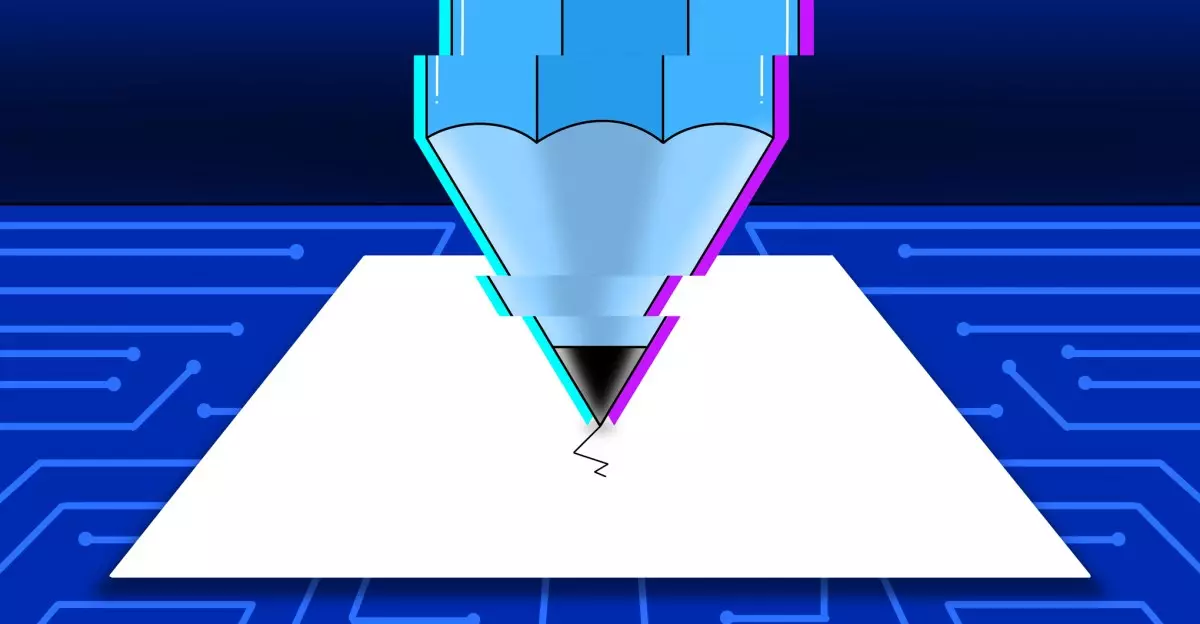The rapidly advancing field of artificial intelligence (AI) has provoked fervent discussions regarding the need for data access, particularly concerning copyrighted materials. Notably, companies like OpenAI and Google are advocating for a more lenient approach from the U.S. government regarding copyright protections. Their motivation is not merely whimsical but rooted in the alarming reality that the United States risks losing its competitive edge in AI to aggressively progressing nations like China. OpenAI’s assertion that unrestricted access to data is essential to maintain AI leadership shines a spotlight on the intersection of technology, copyright, and national security.
This push for amplitude in data access is part of a broader initiative undertaken by the White House, aimed at collecting insights from industry stakeholders to shape future AI policy. The stakes are high, as American companies face potential obsolescence if they cannot harness the data needed to develop leading AI technologies. OpenAI’s argument hinges on a stark observation: competitors in nations such as China will have unencumbered access to vast datasets, potentially leading to advancements that could eclipse American innovations.
The Shadow of Copyright: A Double-Edged Sword
At the heart of this debate lies the complex relationship between copyright laws and innovation. On one hand, the integrity of intellectual property is crucial for incentivizing creativity and protecting the rights of creators. On the other, overly stringent copyright restrictions could stifle technological advancement and limit the capabilities of AI systems. OpenAI argues that by applying fair use doctrines to their operations, the balance can be tilted favorably towards innovation rather than litigation.
The insistence on copyright reform is corroborated by Google’s stance, which suggests that current privacy and patent policies can be detrimental to the progress of AI training. They contend that revising these policies could facilitate an environment where responsible data usage drives innovation, without imposing undue burdens on rightsholders—who often find themselves engulfed in intricate negotiations with AI developers. Google paints a picture of a future where fair use exceptions become the linchpin of AI training methodologies, balancing the needs of creators with those of innovators.
Competing Visions for AI Governance
While OpenAI and Google are vocal about copyright access, other players in the field present diverse needs and priorities. Anthropic, for instance, presents a different viewpoint, emphasizing the development of a framework to assess the national security implications of AI models instead of focusing directly on copyright issues. Their proposal, aimed at fortifying export controls on AI technology, reflects the multifaceted considerations entangled in the rapidly evolving AI landscape.
These varying perspectives highlight a critical element of AI governance: the necessity to craft regulations that adapt to the dynamic nature of technology while promoting innovation and safeguarding public interest. The notion of applying lax rules for data access to facilitate advancements must be balanced with an awareness of potential ethical implications, including the use of creators’ works without adequate compensation or acknowledgment.
Legal Turmoil: The Cost of Innovation
Despite the forward-looking discourse on copyright reform, the dark cloud of legal challenges looms over notable AI enterprises. OpenAI, for instance, is embroiled in lawsuits filed by prestigious entities, including The New York Times and personalities like George R.R. Martin. This legal turbulence signals a growing concern about the extent to which AI companies are permitted to utilize copyrighted content in their training processes. The question remains: to what degree should innovation allow for the erosion of established copyright protections?
The heightened scrutiny faced by several AI firms—from OpenAI to industry giants like Apple—illustrates a cautionary tale about the cost of progress. Allegations of scraping copyrighted data from platforms such as YouTube to enhance AI training capabilities demonstrate an uncomfortable tension between technological advancement and respect for intellectual property. As the industry grapples with these issues, it becomes increasingly clear that finding a harmonious balance will be paramount in shaping the future landscape of AI.
Ultimately, the ongoing discussions surrounding AI data access and copyright policy offer a revealing glimpse into the complexities that lie at the heart of technological advancement, urging a reevaluation of how society values innovation and creativity in an age defined by rapid change.

